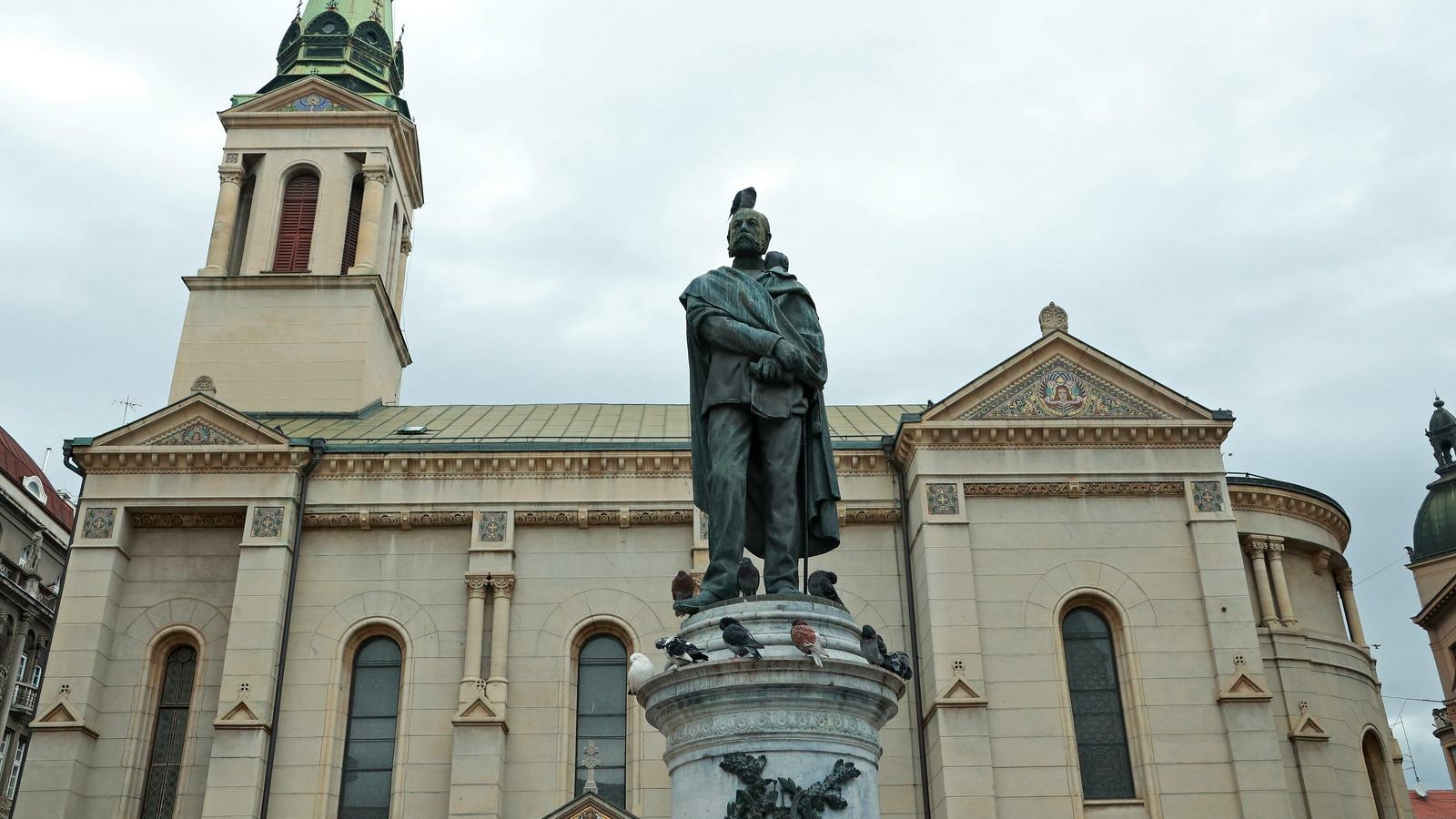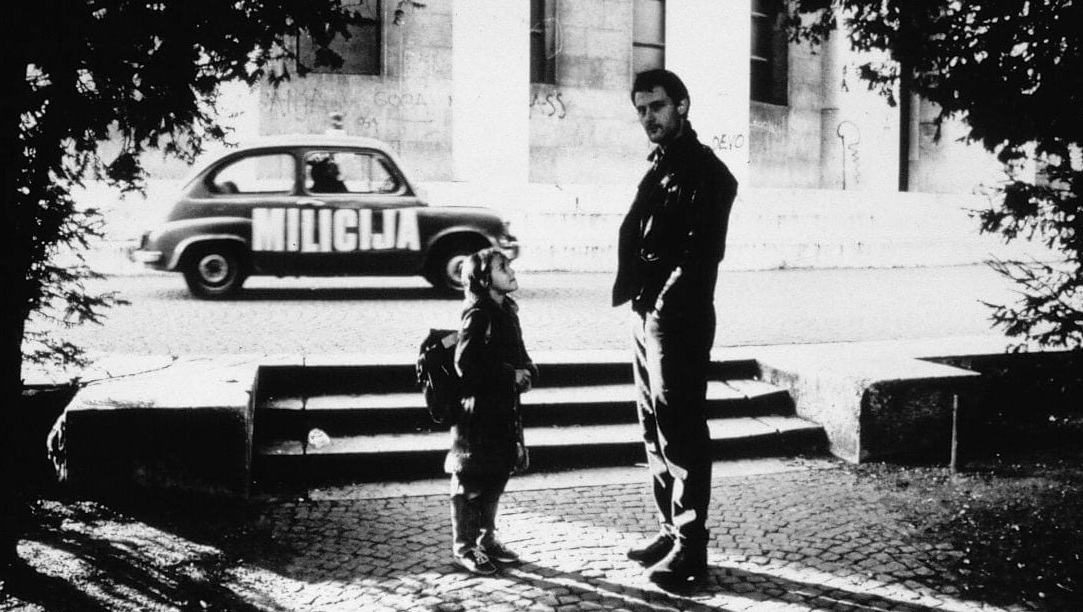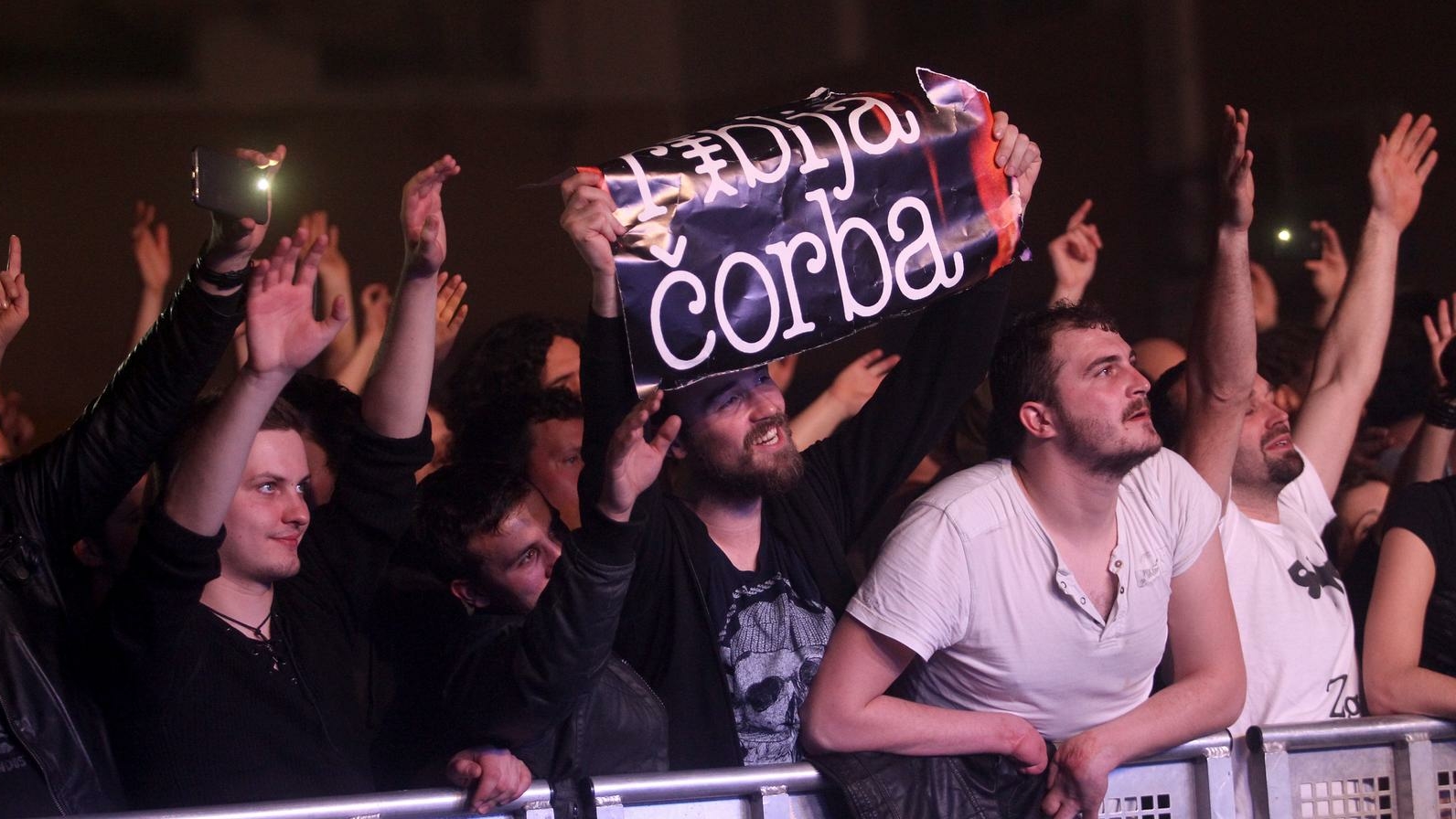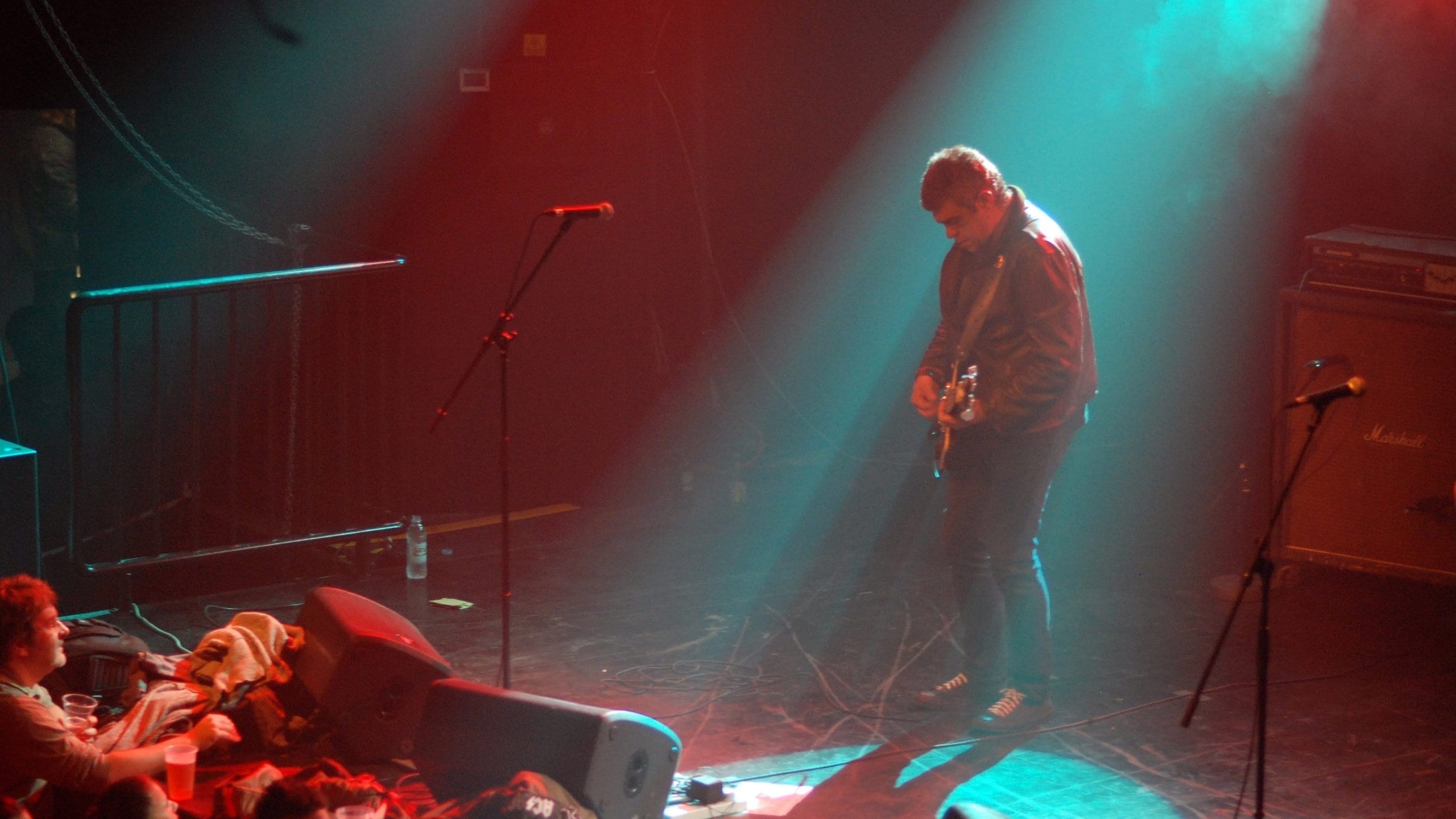For years, you ignore the Eurovision Song Contest, truly, with all your heart. But this Eurovision keeps resounding all around you. You still ignore it. Then your friend Graja wins there with Marija Šerifović. Željko Joksimović is also your and Graja’s friend. Ignore it then, if you can. And why can’t you? Because you are glad. Then you realize Eurovision is important, and you stop lying to yourself.
You start following it. One day, you see Mia Dimšić. You somehow managed to swallow Jacques Houdek years before that, and others whom luckily nobody remembers. Since you swallowed Houdek, you thought you could swallow anyone and anything, such as those unbelievable girls last year. But no. Mia Dimšić rode in on the waves of her own insecurity, and Eurovision was no longer just “the annual kitsch extravaganza” – Eurovision became hell. Mia Dimšić’s performance was appalling. When she finally sang her 62-line-long essay, undecided between two languages, with that choreography, outfit and colors (indescribable) – the alarm finally went off. It cannot go on like this!
Rajko Dujmić’s elusive formula
Maybe Ukraine won the Eurovision Song Contest 2022 because there is a war in that country, but Croatia didn’t win even when it had a war. Croatia wouldn’t have won even if there was no war in Ukraine. Croatia can’t even get to the finals. Croatian representatives followed the last four final Eurovision spectacles on TV. In the last ten contests, they got to the finals only twice. The last tenth place was in 2001, and things have only gone downhill since then. The memories of the good period between 1995 and 1999, when Croatia won two fourth, one fifth and one sixth place, have all but faded away. Just like the hope that something will change.
It didn’t use to be this way. In a country “where nothing was right”, Croatian Eurovision music was undoubtedly dominant. Of the 25 contests in which Yugoslavia participated, Croats represented it 12 times, almost every other time. It would have been 13 of 26 had there not been for the bad luck in 1985, when the Swedes inconsiderately set Eurovision for 4 May, the day of the mourning of His death in Yugoslavia, and the socialist regime ordered Zorica Kondža and Josip Genda to withdraw from the competition. These 12 performances by Croatian talent were reasonably successful for Yugoslavia, bringing it the only victory at Eurovision when Rajko Dujmić and the previously unknown Zadar band Riva beat the European competition with the song “Rock Me” and brought the trophy to Zagreb.
For Dujmić, the third time was the charm: in three consecutive Eurovision contests, from 1987 to 1989, he also won a fourth and a sixth place with the bands Novi Fosili and Srebrna Krila. Along with two more fourth places (with the songs “Džuli” by the Montenegrin Danijel Popović and Croatian Đorđe Novković and “Ne Pali Svetla u Sumrak” by Lola Novaković, the only Belgradian representative successful at Eurovision), these are Yugoslavia’s biggest successes at Eurovision. There were also two seventh places, one won by Dubrovački Trubaduri and one by Berta Ambrož, the highest-ranking Slovenian performer. The best-ranking Bosnian-Herzegovinian performers were Zdravko Čolić and Seid Memić Vajta, who both won fifteenth place. Ambasadori were seventeenth, and Sabahudin Kurt is one of the record holders of Eurovision, having won zero points at the competition in 1964. However, the greatest loser is perhaps Vice Vukov: he performed twice, without success, winning the eleventh and twelfth place out of sixteen. This was in 1963 and 1965. At the time when the Beatles erupted onto the global scene, we still thought it was enough for Vice to open his mouth for everyone to be floored.
But it wasn’t enough. Of course it wasn’t enough. It is Eurovision. Nothing is ever enough and there is always too much of everything. We never understood that completely. With Eurovision, everything is questionable, unpredictable, changeable and difficult to follow, and that is its charm. It is a whole universe of happenings, trends, imitations, dance, music, fashion, language, emotion, sex – everything. It is a world which constantly revolves around itself and within itself, and it is never known what winning combination next year will emerge from these crisscrossings and permutations. Hence the often long wanderings in search of the right song. Wandering means failing, failing means disappointment, doubt in one’s own abilities and questioning what it is all for, and then – giving up. Both Yugoslavia and Croatia have given up. But it is worst to give up on your dreams. That is why both Yugoslavia and Croatia always came back. For, the Eurovision Song Contest is “a monument to nonsense”, as some French politician once correctly said, but so is the world football championship, even more than Eurovision. Only the trophy from Qatar is bigger than the trophy from Turin. Therefore, we all want a victory at the Eurovision Song Contest.
Now, how do we get it? It seemed it would only get easier after Dujmić’s successes; I remember we were all relieved, thinking we had “found the formula”. It was later shown, however, that we had learned nothing, as nothing was ever learned and only vanity grew. How else do we explain that Croatia has won a second and a third place at world football championships since it gained independence and no such place at the European singing championship? There was only one successful period between 1995 and 1999, when Croatian Eurovision music ranked between the fourth and the sixth place, but it then took a nosedive from which it still hasn’t recovered. For, Mia Dimšić is not “just another failed attempt” – she is the paradigm of Croatian musical, and perhaps not just musical, reality.
Horror in three minutes
What, then, happened on 10 May in Turin?
Firstly, it was evident that Mia Dimšić didn’t know why she was there or who she represented. In Đorđe Matić’s few words: “Neither she, nor the song, nor the country knows who they are.” There was nothing Croatian in that performance. It was almost as if Mia was ashamed of her country. Patriotism must be more than waving a flag. Anyone can wave a flag, but not anyone can step onto the Eurovision stage. But Mia exhibited all the signs of the “provincial complex”. Croatia allowed its identity to be represented by a woman with apparently no personal or national identity. Mia represented Croatian culture, but it seemes she herself isn’t sure what culture she belongs to. Mia sends the message: Croatia is without identity. Yes, Croats seem to have a desperate need to be loved by everyone. Mia Dimšić wants to show she is worthy of that love even though she is from Croatia. “I am yours,” Mia begs, “love me, vote for me.” Of course, they won’t vote for her, not even out of pity. They want her to impress them and not her to be impressed by them. They are already impressed enough with themselves and are very arrogant about it. Mia doesn’t understand that. She isn’t even interested in the statistics, although they are brutal: of the last six Croatian Eurovision songs, all were in English, and all were a fiasco. Four didn’t get to the finals, one was thirteenth, and one was twenty-third.
How come Mia doesn’t see that all of Croatia’s best results at Eurovision were achieved with songs in Croatian? There’s no mystery there: you can convey emotion only in your own language. If we listen to all Croatian Eurovision songs in English, we will hear it: they are all without emotion. Eurovision is full of all kinds of emotions. Everyone tries to convey some kind of emotion, whatever it might be. Some make an impact, and some don’t. Croatia belongs to the “don’t” category.
Even the origins of the song aren’t Croatian. It is not entirely clear whose they are. Asked to do an expert analysis, Đorđe Matić found that it is “a neo-country ballad with elements of white soul, in the style of inoffensive contemporary Western singer-songwriters.” This mixture is of undefined origin, can be from anywhere and does not rely on a source of a style but on its (not necessarily good) copy from who knows where. This gave us this incoherent song that looks like Mia got carried away reading the lyrics, started humming the song and continued so until the end.
There was, in truth, no time to work on the melody because it seemed that it was already there, and there were so many lines to learn, especially when it isn’t your mother language. Especially when you don’t live in London or New York but in Osijek and have an accent. Why does Mia imitate someone who lives somewhere else instead of showing us where she lives? There are so many wonderful towns in the world, one of which is Osijek. What was it that drove her, a girl from Osijek, to show herself to the world if she didn’t show anything? It was as if she was actually trying to get to Ireland, like many other Osijek natives, and was practicing. But the Eurovision Song Contest is not a place to practice – it is a place to play the finals. That is why there are no finals for Mia Dimšić.
I still don’t believe that scandalous moment happened, the moment when she takes off the guitar and hands it to someone else, as though casting away some unnecessary thing. It was so touchingly stupid that I was left speechless. I sat in front of the TV, crushed by secondhand embarrassment. The guitar, hey, that will maybe be her bread and butter tomorrow? It wasn’t, however, the only wrong message. It was the least wrong one. For me, it was worst when she got bored with English and suddenly switched to Croatian, shyly and with bad diction. Why shyly and with bad diction in Croatian? Has she sung in English her whole life and never had the time to learn to sing in Croatian? Did she not have enough time, or was she not interested? Why did she repeat “it is time for us” ad absurdum but looked as though she was dying of grief, as though she would cry at any moment and was saying farewell to herself? How and why did this emotional mix-up happen? And how did she even manage to fit this entire disaster in just three minutes?
Industry of shoddy goods
Croatian Radio-Television (HRT), as the entity in charge of the project, must make clear, to itself and then to the public, what it wants from Eurovision. Does Croatia need to participate in that contest or not? What does it bring, and what does it take away? For Serbia, for example, it helped increase tourism, but Croatia is already a tourist mecca. Something else then, perhaps? Perhaps nothing? HRT must decide, with consultation or without it. If it decides participation brings no benefit, let Croatia withdraw. If it does bring something, then HRT must approach it as a task of national importance. If you are sending someone to represent Croatia somewhere, send them as befits the task. Why do the best go to the world football championship and the worst to the European singing championship? Why do footballers have a national identity, but singers do not?
Contestants at Dora, importantly, must not sing in English. Eurovision allows contestants to sing in English, but HRT must not. If Mia Dimšić is the Dora winner, then Dora isn’t working. Maybe it would be good to think about a new format for the competition for Croatian Eurovision representatives. Maybe it wouldn’t be bad to hire a scout to go around Croatia in search of new concepts. Maybe there is someone more convincing in Osijek than Mia Dimšić but has no one to call. Maybe the Eurovision team at HRT should hire new people to work in tune with the times. Times are changing, and the Eurovision Song Contest is changing. We must not be left behind. It sends the wrong messages: the Croats don’t have their own language; the Croats want to be liked by everyone; the Croats don’t have their own emotions, so they borrow others’. How come the Croats suddenly don’t have emotions? And why were so many of Croatian Eurovision performances completely artistically undistinguished? Why was there no ambition to make at least a Croatian hit? Why is music in Croatia no longer art but is becoming an industry of shoddy goods?
Is this the consequence of the catastrophic Croatian radio policy? Is it true that anyone who wants to be played on the radio in Croatia must silently accept a code of radio behavior? Must they conform to this blandness, where songs are so alike that you don’t know which is which? I was present when Damir Urban talked in Rijeka how, when composing a song, he has to take care to appeal to radio producers so that they can fit him into their cage. I then remembered Tereza Kesovija saying the same thing a few years earlier. It interested me, so I asked around and heard the same thing in Pula and Zagreb. It seemed like national treason to me. Who built this cage and why? Who are the people killing Croatian creativity? Isn’t that censure worse than any communist one? What is the purpose of that? Should Croats stop writing their own music and become a peripheral British or American colony that only imports music? They already sing in English and import all kinds of other things.
Yes, we would all like Croatia to win at Eurovision one day. But there are many questions to answer. It is urgent – it cannot go on like this.
Translation from Croatian: Jelena Šimpraga
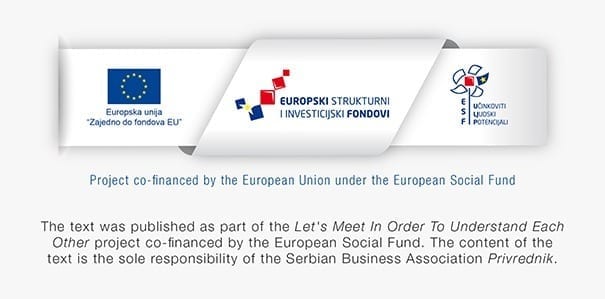
This post is also available in: Hrvatski


